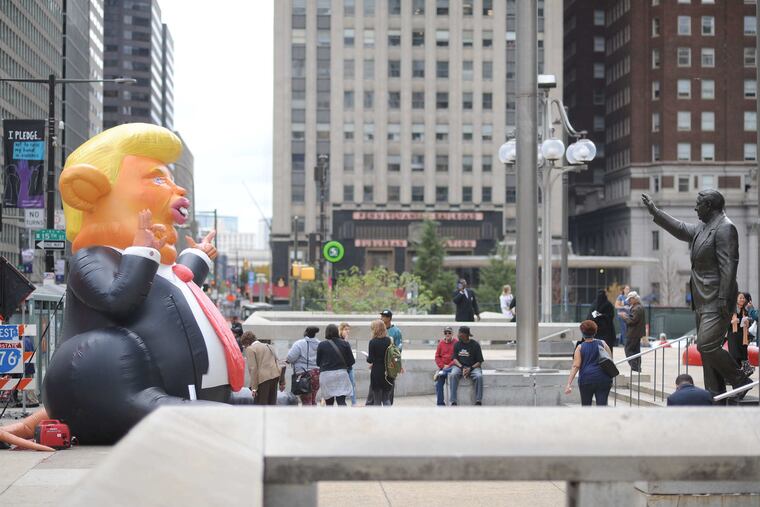Frank Rizzo galvanized a Philly movement. We could see another in 2020. | Opinion
A volatile reactionary, whether a mayor or president, can trigger grassroots action, as I examine in my latest novel.

In my latest novel, The Year of the Return, Paul Silk, a former Inquirer journalist, quits his position at the Denver Post and returns to Philadelphia. It’s 1976. The novel is about personal recovery. Paul’s wife Charlene, a brilliant reporter, has died and Paul is searching, desperately, for a way to move on.
But the novel is also about Philadelphia’s search for hope amidst economic collapse and political crisis and it offers us illuminating perspective on the restive state of the American democracy today. It turns out that a volatile reactionary, whether a mayor or president, can trigger urgent, and transformative, grassroots action.
The city’s psyche in 1976, with the fraught Bicentennial coming, was dominated by Mayor Frank Rizzo. Beloved by his base, he was also a singularly divisive figure prone to authoritarian tactics, who called certain elements of the press the enemy and taunted gay people, minorities, and young activists.
In March of ’76, in a scene that plays out in the novel, police and union men blockaded the Inquirer Building, shutting the paper down for a day in direct violation of the law (the blockade is one reason the Inquirer Building’s conversion to police headquarters is an act of historical irony). They are widely believed to have been carrying out orders from Rizzo, who was lashing out against perceived mistreatment by journalists. Rizzo was under increasing popular attack for corruption, police brutality, and mismanagement and for lying about the city’s finances in order to get reelected the year before.
The month of the blockade, a group of lawyers, liberal politicians, and community activists acting as the Citizens Committee to Recall Rizzo launched a democratic campaign to remove Rizzo from office. The recall campaign needed the signatures of 145,448 registered voters in order to trigger a referendum vote, which would take place on November 2, 1976.
Immediately, the recall campaign galvanized a broad spectrum of people who had been aggrieved by Rizzo for years, from victims of police brutality to good government advocates astonished by ballooning budgets and backroom deal-making. As petition campaigners spread out across the city, for the first time since the New Deal a genuine cross-racial, cross-class and cross-neighborhood coalition was emerging with the potential to transform Philadelphia’s political and civic life from the bottom up. In weeks, campaigners collected an astonishing 211,190 signatures, nearly 70,000 more than was required.
Well-trained and disciplined, campaigners were careful to only take signatures from verified voters, as a poll showed that 57 percent of voters wanted him removed from office. The prospect of recall started to get to Rizzo in a way that sounds familiar to us now, in the days of the Trump impeachment inquiry. As former Inquirer reporter S.A. Paolantonio wrote in Rizzo, the self-aggrandizing mayor claimed that the Queen of England had made a pass at him during a ceremonial dinner for the Bicentennial.
Rizzo’s political protectors on the City Committee and later on the Supreme Court ensured he escaped recall, despite ham-fisted lawyering suggestive of current White House Counsel Pat Cipillone. But when, two years later, Rizzo tried to change the City Charter to give himself a third term, the coalition stopped him, in a moment of pro-democracy organizing one Philadelphia activist recently told me has never been repeated.
The rising resistance took place at the height of deindustrialization, which tore neighborhood life apart. And yet this is the moment—not 1991 and the election of Ed Rendell—that was the seed of this city’s fertile civic life, its economic, population, and cultural germination.
At my most hopeful, I can imagine something equally powerful unfurling nationwide—even if President Trump escapes impeachment. Already, measures of democratic participation are rising substantially, particularly thanks to robust and inclusive resistance movements, and the extraordinary site of young people organizing to save their future. Their hopefulness is the seed of our next recovery.
Nathaniel Popkin is the author of six books, including the new novel The Year of The Return, and co-editor of the anthology Who Will Speak for America? He is the writer of the documentary series “Philadelphia: The Great Experiment.”